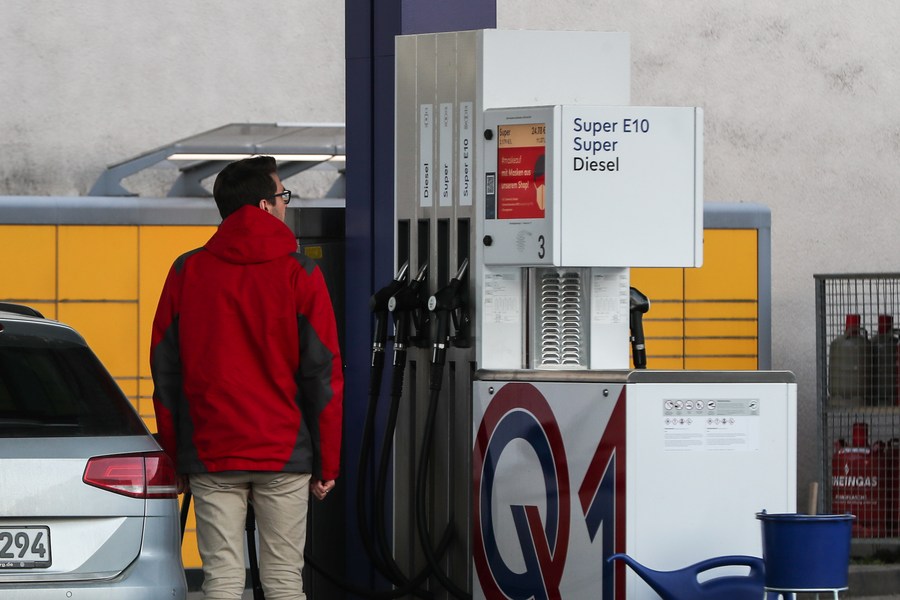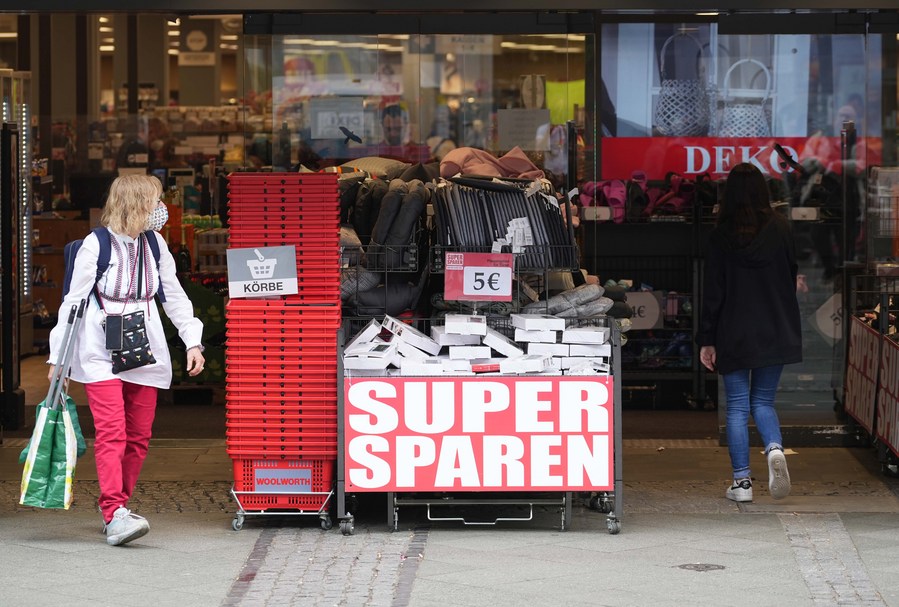
A customer looks on a screen displaying the cost as he fuels a vehicle at a gas station in Berlin, capital of Germany, March 11, 2022. (Xinhua/Shan Yuqi)
Annual inflation in Germany in 2022 is expected to reach near-record levels at 7.4 percent, significantly higher than the price increases during the 1970s oil crisis, according to the Kiel Institute for the World Economy (IfW Kiel).
BERLIN, June 28 (Xinhua) -- After a brief recovery, consumer sentiment in Germany was "continuing its downward spiral" and fell to a new record low, according to a monthly study published by the market research institute GfK on Tuesday.
The forward-looking index for July decreased by 1.2 points to minus 27.4 points compared to the previous month. The GfK study is based on interviews of around 2,000 consumers in Germany.
The ongoing Russia-Ukraine conflict and the global supply chains disruptions were "causing energy and food prices in particular to skyrocket, resulting in a gloomier consumer climate than ever before," GfK consumer expert Rolf Buerkl said.
Inflation in Europe's largest economy reached its highest level in almost 50 years in May. Consumer prices in Germany were up 7.9 percent year-on-year, according to the Federal Statistical Office (Destatis).

Customers are seen at a shop in Berlin, capital of Germany, on May 11, 2022. (Photo by Stefan Zeitz/Xinhua)
Soaring energy prices driven by the Russia-Ukraine conflict had a "substantial impact on the inflation rate," as overall energy prices skyrocketed by 38.3 percent year-on-year, Destatis noted.
The German government has adopted several measures to cushion the effects of rising energy prices on consumers and companies. These include an increase in the basic tax-free allowance, higher mileage allowances for long-distance commuters, a discount ticket for public transport and a fuel tax cut.
The European Central Bank (ECB) should now pursue an "appropriate monetary policy," GfK said. However, "all implemented measures must be carefully considered to prevent an excessively restrictive monetary policy from plunging the already ailing German economy into recession."
Annual inflation in Germany in 2022 is expected to reach near-record levels at 7.4 percent, significantly higher than the price increases during the 1970s oil crisis, according to the Kiel Institute for the World Economy (IfW Kiel).

People stand on a flyover of a shopping mall in Berlin, capital of Germany, Feb. 11, 2022. (Photo by Stefan Zeitz/Xinhua)
Should the supply bottlenecks ease and crude oil prices cease to have any further impact on the inflation rate, inflation would normalize next year and fall to 4.2 percent in 2023, according to IfW Kiel. ■












